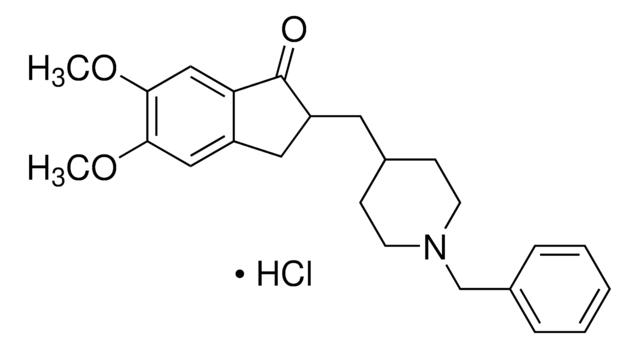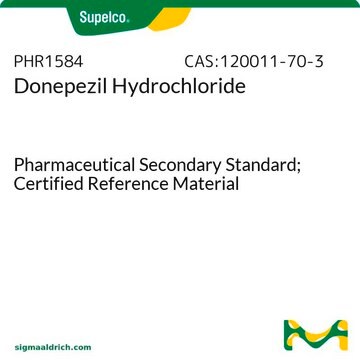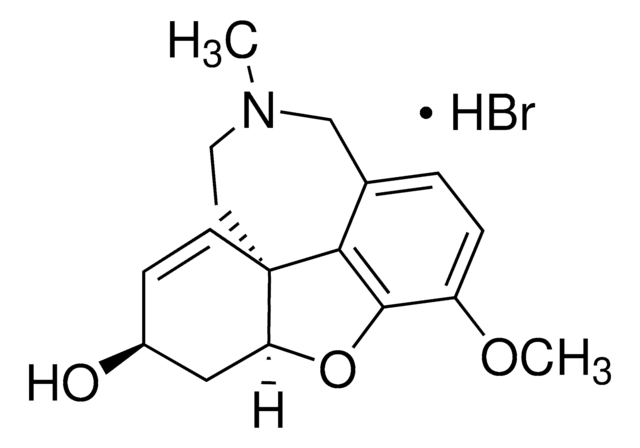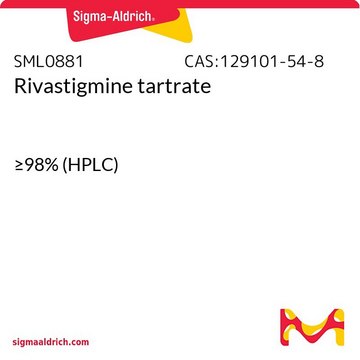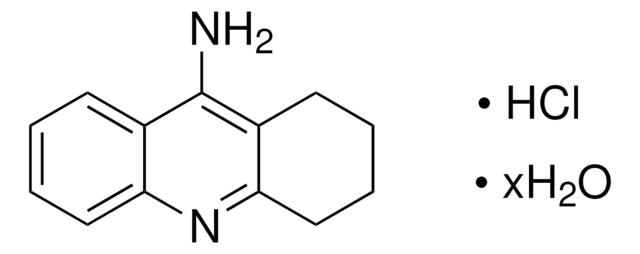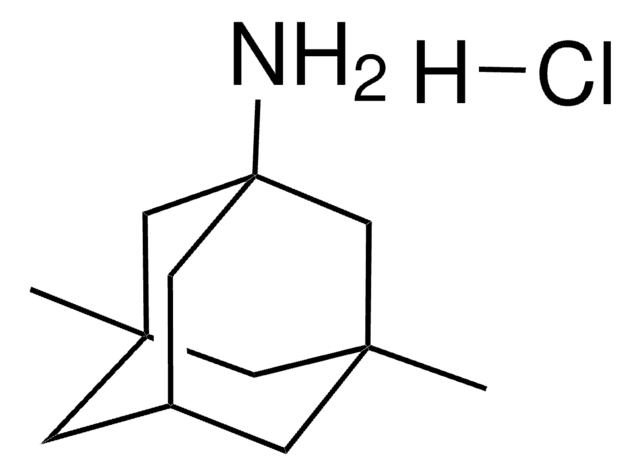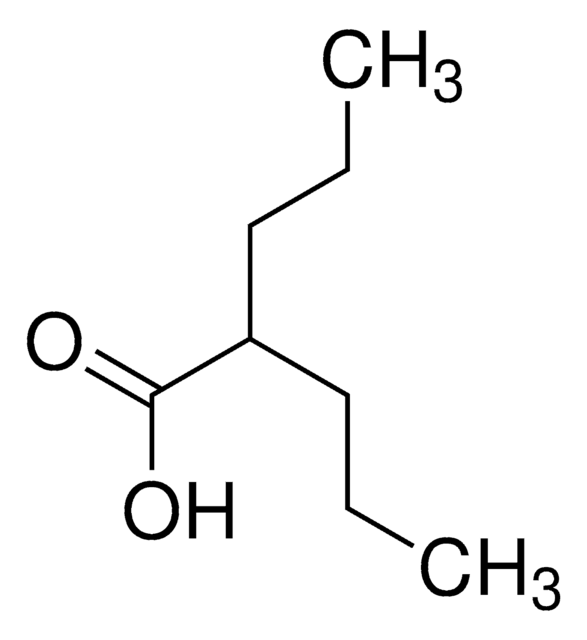1224981
USP
Donepezil hydrochloride
United States Pharmacopeia (USP) Reference Standard
Sinónimos:
(±)-2-[(1-Benzyl-4-piperidyl)methyl]-5,6-dimethoxy-1-indanone hydrochloride, 2,3-Dihydro-5,6-dimethoxy-2-{[1-(phenylmethyl)-4-piperidinyl]methyl}-1H-inden-1-one
About This Item
Productos recomendados
grado
pharmaceutical primary standard
familia API
donepezil
fabricante / nombre comercial
USP
aplicaciones
pharmaceutical (small molecule)
Formato
neat
InChI
1S/C24H29NO3.ClH/c1-27-22-14-19-13-20(24(26)21(19)15-23(22)28-2)12-17-8-10-25(11-9-17)16-18-6-4-3-5-7-18;/h3-7,14-15,17,20H,8-13,16H2,1-2H3;1H
Clave InChI
XWAIAVWHZJNZQQ-UHFFFAOYSA-N
¿Está buscando productos similares? Visita Guía de comparación de productos
Descripción general
Aplicación
- Novel tacrine-donepezil hybrids for Alzheimer′s treatment: Research has led to the development of new tacrine-donepezil hybrid compounds targeting Alzheimer′s disease, offering enhanced bioactivity and potential therapeutic benefits. These hybrids demonstrate multifunctional approaches in addressing neurodegenerative disorders by combining the acetylcholinesterase inhibitory effects of donepezil with the neuroprotective properties of tacrine (Bayraktar et al., 2024).
- Role of oligodendrocytes in Alzheimer′s disease: A study explores the involvement of oligodendrocytes in Alzheimer′s pathogenesis, highlighting potential mechanisms where donepezil could be implicated in modulating neurodegenerative processes. This research underscores the broader applicability of donepezil in understanding and potentially treating Alzheimer′s disease (Wang et al., 2024).
- Shenghui decoction′s neuroprotective effects: Investigating traditional therapies, this study assesses the neuroprotective effects of Shenghui decoction in an Alzheimer′s disease model. Donepezil′s role in this context is compared, contributing to broader insights into potential integrative treatments for neurodegenerative diseases (Lu et al., 2024).
- Electrochemical sensors for Alzheimer′s drug analysis: The development of electrochemical acetylcholinesterase sensors designed for the detection and study of anti-Alzheimer drugs like donepezil underscores its importance in research and therapeutic monitoring. This advancement supports the precise administration and study of donepezil in clinical settings (Ivanov et al., 2024).
- Modulating neurodegeneration with donepezil: A study on the combined effects of endothelin receptor agonist IRL-1620 with donepezil in an amyloid-β induced model of neurodegeneration in rats, expands our understanding of donepezil′s therapeutic potential beyond traditional applications, suggesting its utility in complex therapeutic regimes (Mahajan et al., 2024).
Nota de análisis
Otras notas
Producto relacionado
Palabra de señalización
Danger
Frases de peligro
Consejos de prudencia
Clasificaciones de peligro
Acute Tox. 2 Oral - Eye Irrit. 2
Código de clase de almacenamiento
6.1A - Combustible acute toxic Cat. 1 and 2 / very toxic hazardous materials
Clase de riesgo para el agua (WGK)
WGK 3
Punto de inflamabilidad (°F)
Not applicable
Punto de inflamabilidad (°C)
Not applicable
Elija entre una de las versiones más recientes:
Certificados de análisis (COA)
Lo sentimos, en este momento no disponemos de COAs para este producto en línea.
Si necesita más asistencia, póngase en contacto con Atención al cliente
¿Ya tiene este producto?
Encuentre la documentación para los productos que ha comprado recientemente en la Biblioteca de documentos.
Los clientes también vieron
Nuestro equipo de científicos tiene experiencia en todas las áreas de investigación: Ciencias de la vida, Ciencia de los materiales, Síntesis química, Cromatografía, Analítica y muchas otras.
Póngase en contacto con el Servicio técnico